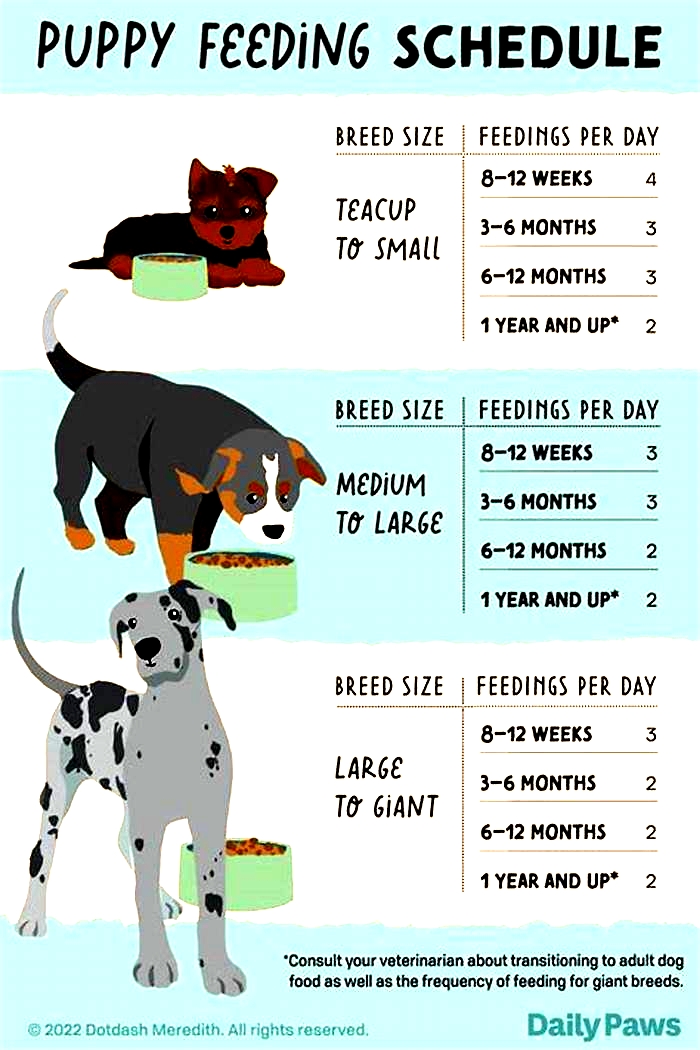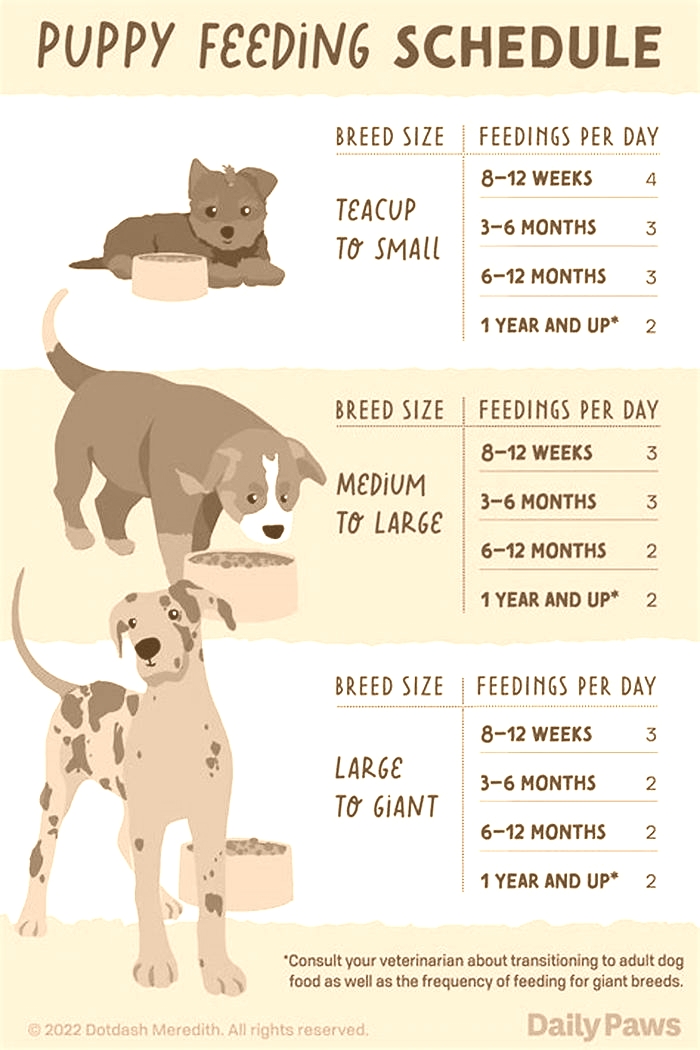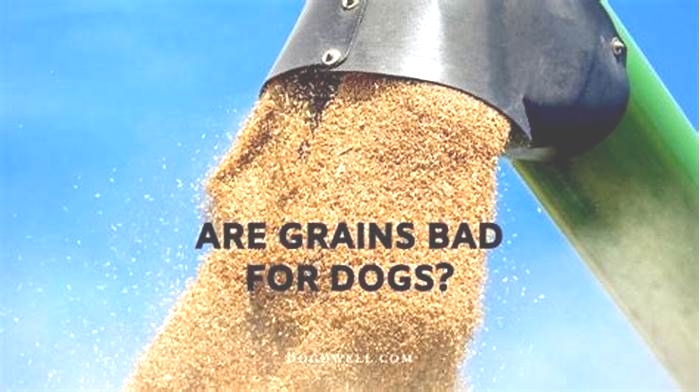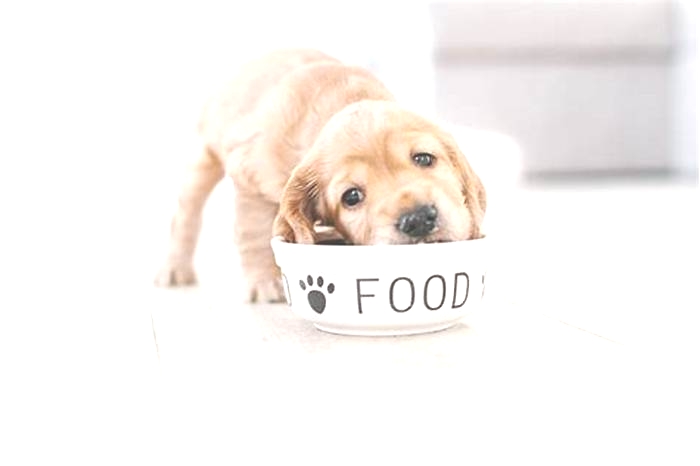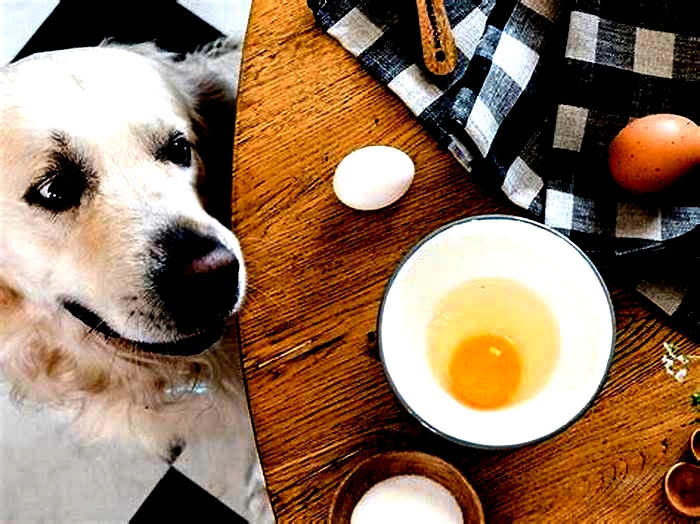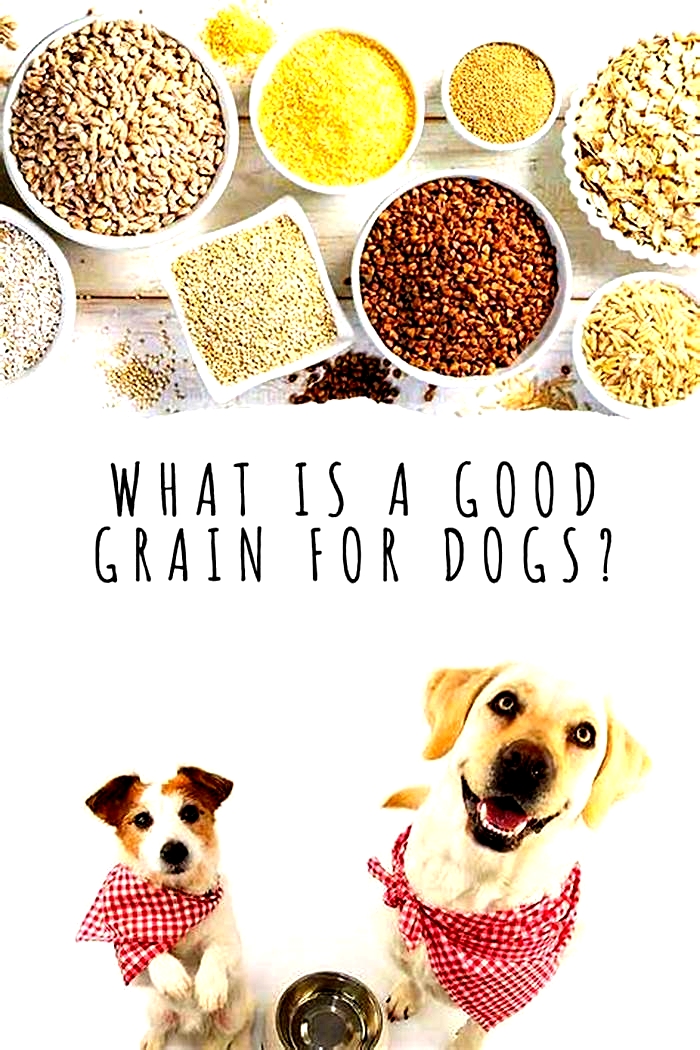Can dogs eat salmon
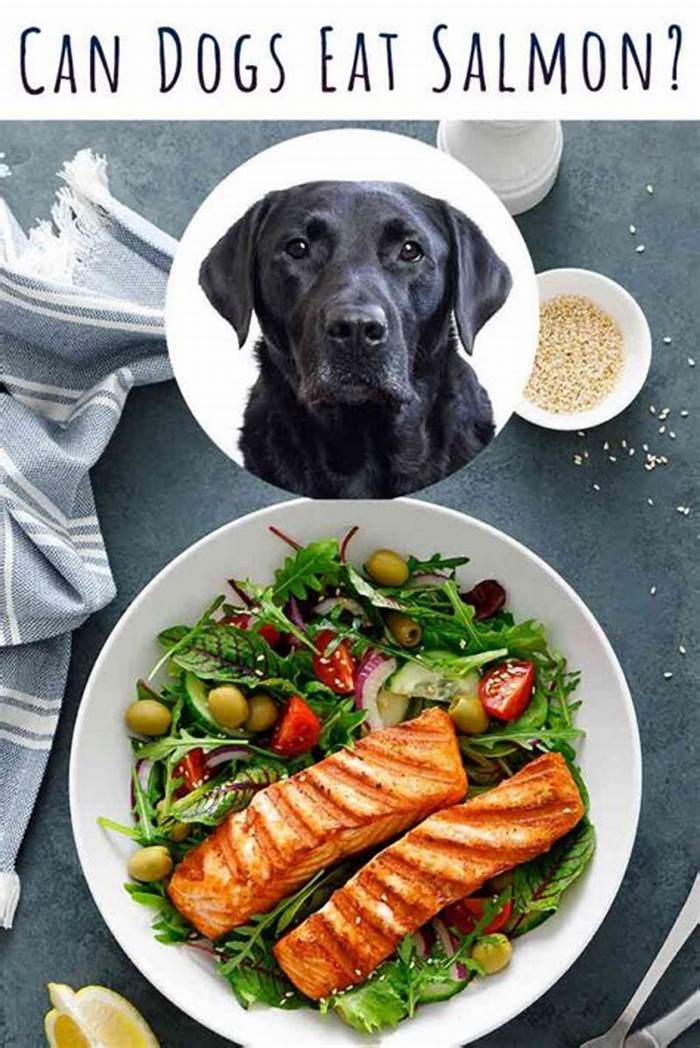
Can Dogs Eat Salmon?
NOTE: Always check with your veterinarian first before giving your dog any new foods, especially people foods. What might be OK for one dog might not be good for your dog, depending on multiple factors, such as their age, health history, health conditions, and diet. Dogs on prescription diets should not be fed any food or treats outside the diet.
Does your pooch have a penchant for fish? Many dogs like the taste and smell of seafood, but its important to understand the benefitsand possible risksanytime you consider adding a new ingredient to their diet.
Thankfully, when it comes to cooked salmon, your dog is safe. Salmon is a popular ingredient in many types of commercial dog food and is also OK for your dog to eat as a food topper or tasty treat. As with any new food, youll want to be careful not to feed your dog too much salmon to start, and be sure to watch out for any extra ingredients that might be included in typical human recipes (like butter or seasonings) that can be dangerous for dogs to eat.
Keep reading to find out how to safely prepare salmon for dogs, and when youll want to ask your vet for advice.
Is Salmon Good for Dogs?
Salmon can be a great addition to your dogs diet, and many high-quality dog food brands use salmon as a protein source. Unlike some seafood, such as tuna, the U.S. Food and Drug Administration (FDA) reportsthat salmon contains very low levels of mercury.
So, adding a little cooked, plain salmon to your dogs bowl can be a great way to give them an extra boost of flavor and nutrition. A few nutritional benefits of feeding your dog salmon include:
- Omega-3 fatty acids: Salmon is a great source of omega-3s, which are good for dogs skin and coat health, and can even improve mobility for dogs with joint issues or other inflammatory diseases.
- Protein: In addition to being an excellent source of healthy fats, salmon is also a good source of protein, which helps your pooch build and repair muscle tissue. There are many high-quality dog foods that use salmon as a main source of protein, which can be a great option for dogs who have allergies to other proteins like chicken, beef, or lamb.
- Vitamins and minerals: Salmon is also a good source of B vitamins. One important nutrient thats critical for keeping your dogs brain and nervous system healthy is vitamin B12, and salmon is rich in B12.
Just be sure to check with your vet before making any major changes to your dogs diet, especially if your dog has any health conditions or sensitivities.
Can Dogs Eat Salmon Raw?
Even with all the health benefits of salmon for dogs, pet parents should be cautious about feeding their pooch raw or undercooked salmon. Feeding your dog uncooked salmon can make them very sick. Raw and undercooked salmon can contain a parasite known to cause salmon poisoning disease, which can be fatal for dogs if left untreated. So sorry, sushi-sniffing hounds! Baked, broiled, grilled, and boiled fish are all much safer options for dogs to eat.
If your dog does get ahold of raw salmon or raw fish of any kind, give your vet a call so they can help you determine next steps.
Can Dogs Eat Salmon Skin?
If youve baked a nice salmon dinner but dont care much for the skin, its fine to share that leftover bite with your pooch. Salmon skin is safe for dogs to eat. Just be sure the fish has been thoroughly cooked and isnt seasoned with spices or ingredients that are toxic to dogs (like onions, butter, or garlic).
In fact, that scraping of salmon skin can be a great way to give Fido extra nutrients rather than throwing it into the compost if its not to your taste. Salmon skin actually contains even more of the healthy omega-3 fatty acids than the rest of the fish. So if youre not a fan of the skin, topping off Fidos food dish with a small amount of your leftovers can be a win-win for you both. Just remember to feed your dog salmon skin only in small amounts.
How to Safely Feed Salmon to Your Dog
Salmon is a safe snack for dogs, but that doesnt mean you should grill them an entire fish for dinner tonight! Giving salmon as a treat is a good place to start, and you can gradually increase amounts to let your dogs body adjust to the new food. This can help them avoid adverse effects like an upset stomach or diarrhea, which can happen when your dogs usual menu changes.
Any salmon given to your dog should be fresh, cooked, and free from bones, which pose a choking hazard. Avoid any seasonings or extra ingredients, as many common ingredients are not safe for dogs to consume.
Canned salmon is also OK for dogs to eat, but youll want to watch the sodium. While canned salmon in water is a better choice for dogs than salmon packed in oil, rinse it thoroughly to remove any excess salt or oil from the canning process before adding it to your dogs dish.
How Much Salmon Can Dogs Eat?
Feeding small amounts of fresh, cooked, boneless salmon as an occasional treat is considered safeand even healthyfor dogs. But as with any new food, start slow! Its always best to err on the side of caution when it comes to your dogs health.
Here are some general guidelines for how much salmon is safe for dogs to eat, based on their weight:
- Extra-small dog (220 pounds): 12 ounces of fresh, cooked, boneless salmon per week
- Small dog (2130 pounds): 23 ounces of fresh, cooked, boneless salmon per week
- Medium dogs (3150 pounds): 34 ounces of fresh, cooked, boneless salmon per week
- Large dogs (5190 pounds): 46 ounces of fresh, cooked, boneless salmon per week
- Extra-large dogs (over 90 pounds): 68 ounces of fresh, cooked, boneless salmon per week
Note that these are just general guidelines. Its always best to check with your vet before making major changes to your furry friends food bowl.And remember: Raw seafood can contain harmful bacteria and/or parasites that can cause illness in dogs.
Featured Image: iStock/O_Lypa
Can Dogs Eat Salmon?

Can Dogs Eat Salmon?
Written by:Dr. Merliza Cabriles
Yes, you can give salmon to your dog provided that it is well-cooked and has been completely deboned. Raw salmon or any other fish or seafood is a total no-go for dogs, because of harmful bacteria and parasites. Salmon is also very high in essential nutrients for dogs. However, there are some important considerations that you should be well aware of before giving some to your pet.
Health benefits of salmon for dogs
The high-quality protein and omega-3 fatty acids in salmon provide various health benefits in dogs, which include the following:
- Brain health and function
- Help boost your dogs immune system
- Reduce inflammation of the joints
- Alleviate symptoms of arthritis
- Help maintain healthy skin and coat
- Helps with joint mobility
- Reduce skin irritations and allergies
- Salmon is also rich in vitamins A, B-complex, and vitamin D, as well as magnesium, potassium, and zinc.
Health risks of salmon for dogs
Harmful bacteria and/or parasites are a real concern when you feed it raw. Salmon can be filled with flukes, a type of parasite that can cause
- Vomiting,
- Diarrhea, and
- Even death in dogs!
In moderation, salmon can contribute to keeping your dog healthy, but make sure its well-cooked to kill all harmful parasites and bacteria which might be present.
Just in case your dog ate raw salmon by accident, dont panic. A small piece wont likely have adverse effects. Just be on the lookout for digestive upsets, vomiting or diarrhea.

Salmon poisoning disease (SPD) in dogs
This is a fatal condition that can occur when a dog eats raw salmon that contains the parasite,Neorickettsiahelminthoeca. Once the parasite reaches the dogs small intestine, it causes hemorrhaging and gradually invades the entire body.
Important symptoms that you should watch out for include:
- Vomiting
- Diarrhea
- Fever
- Eye and nose discharge
- Swollen lymph nodes
If you see any of these signs in your dog it is a good idea to call your veterinarian.
How about dogs and seafood allergies?
Salmon is actually good for dogs with allergies because they are rich in omega fatty acids that can also promote skin and coat health.
How about canned salmon and dogs?
You can give canned salmon to your dog but be sure to choose salmon in water and avoid those that contain brine or oil, because the salt and oil can be harmful to your dog. You dont have to remove the bones in canned salmon because these can usually be eaten. If you want to be on the safe side, however, you can remove those as well of course.
Can dogs eatsalmonskin?
Salmon skin is very high in fats, so you better remove it. If your dog ate some, there is no need to worry about it, but it is recommended to keep a close eye on your dog in case he suffers from digestive upsets.
Can dogs eat smoked salmon?
Never give smoked salmon to your dog because it is cured using ingredients, especially salt, that is harmful to your dog. Smoked salmon may also contain parasites which can cause a fatal condition in dogs.
Can puppies eat salmon?
Cooked or tinned salmon may be offered to puppies as an occasional treat.
Preparing salmon for your dog
Using virgin olive oil or vegetable oil when cooking salmon can further boost the nutritional benefits of the dish. Make sure that its well done; in fact, overcooking is better than raw when it comes to feeding salmon to dogs. It is also a good idea to remove the fish skin because it is very high in fats.
Asgarliccan be very harmful to dogsandonions are also a real threat to dogs, make sure not to use any of those substances when you prepare it at least for your dog!Dogs can eat tunaand sardines as well, which are also rich in omega-3 fatty acids.

Did we miss anything? Please help us improve and share your thoughts in the comments!
Can Dogs Eat Salmon?
If youve ever walked down the dog food aisle of your local pet supply store, youve likely realized that salmon is frequently on the menu for many canine companions. But can dogs eat salmon? Dont take the bait! Just because it is an ingredient in dog food does not necessarily mean that dogs can safely eat any type of salmon that we could offer them. If you want to add salmon to your dogs diet, read this article first!
Dr. Jess describes the benefits and the risks of feeding salmon to your dog, as well as which forms of salmon dogs can eat, and which are best left out of their bowl.
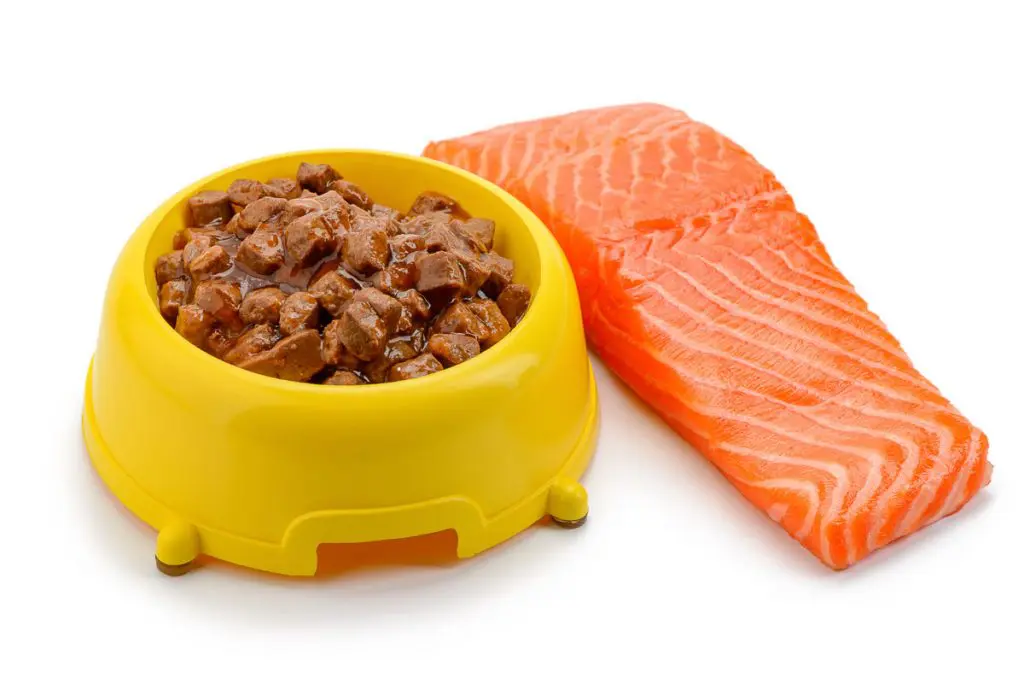
Dog food companies commonly use salmon and fish in general, as one of their many ingredients.
However, dog food experts have arguments regarding the safety of serving fish like salmon to dogs.
Topics such as an increase in the risk of mercury poisoning, hypernatremia, as well as thiamine inactivation are a few of the fishy concerns of many experts.
Well, is salmon really a health threat to dogs or are we overthinking this? Let me, the veterinarian, explain my thoughts
Its always best practice to double-check which foods your dog can and can not eat because many foods that are completely safe and healthy for humans are actuallyvery risky for dogs to eat, or even poisonous or deadly to them.
Thats why I am so glad that you are here making an informed decision before feeding your dog this salmon feast!
If you missed it, check out my article on if dogs can eat different forms of tuna fish here!
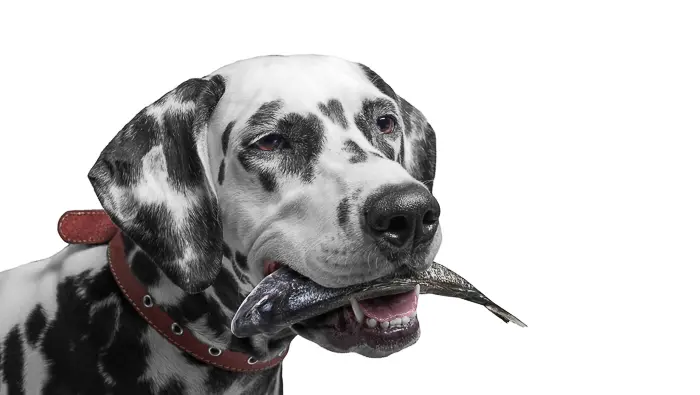
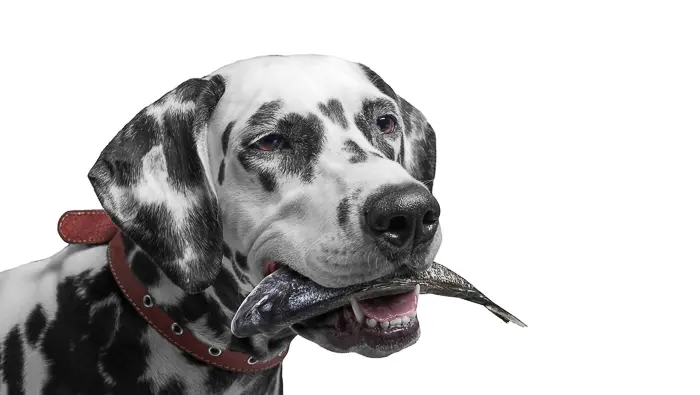
What Do Dogs Eat?
Some dogs arent too picky about what they eat. Theyll eat whatever you try to give them- theyre like vacuum cleaners sucking up anything put in front of them!
Some dogs are pickier than others. Pickier pups can be harder to properly feed because they just wont swallow any food we try to give them. Try feeding a picky dog something like okra!
A common petcanine dietconsists of a complete dry or wet feed and possibly supplements in some specific cases (not all pet dogs need supplements however).
There is also foraging if the dogs are allowed to roam or are feral, and of course there are treats!
The diet of every dog breed can very and is important to know when offering food to your dog.
An improper diet could put your dog at risk of having problems properly digesting their food andabsorbing nutrients correctly.And we dont want that now do we???
So lets talk specifically about salmon and how it could affect your dogs diet and overall health.
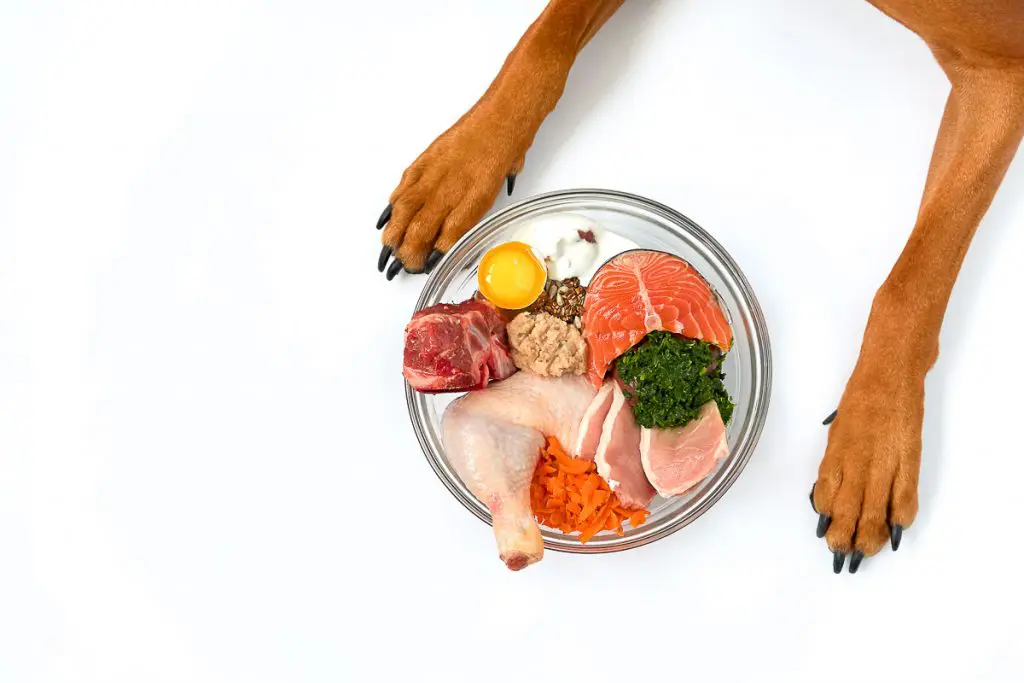

Salmon Nutrition Basics:
Fish in general is low in fat, and high in omega-3 fatty acids and vitamins (especially B vitamins) and important minerals.
Salmon is high in omega 3 fatty acids which may help to reduce inflammation in the body.
Salmon also contains vitamin B12, selenium and is typically lower in heavy metals compared to other fish. Salmon is best if it is wild caught, as farmed salmon may contain more toxic chemicals.
Fish like salmon, for instance, feature the same nutritional benefits of larger fish like tuna, but with a decreased risk of mercury poisoning. So salmon is typically a better choice for your dog than tuna is.
To summarize the nutritional benefits in salmon, WebMD states:
A serving of salmon 3 to 4 ounces is about 200 calories. Its very low insaturated fatand a good source ofprotein. Its also one of the best sources ofvitamin B12. Itsalso bursting inpotassiumand other nutrients like iron andvitamin D.
https://www.webmd.com/food-recipes/benefits-salmon#1
Do Dogs Like Salmon?
Dogs are natural carnivores. Most dogs like the taste of meat and meat products.
The flavor of salmon and fish in general, is usually a delicious one for most dogs too.
So yes, most dogs like the taste of fish, salmon included.
Can Salmon Be Harmful to Dogs?
There is an ongoing debate about whether or not it is safe and okay for dogs to eat salmon.
Some vets and pet nutritionists say that dogs can eat fish and be healthy and happy no worries. Other pet experts say the opposite they are against feeding this fish to dogs.
Then there are even others who suggest feeding only small amounts of salmon to dogs- it is okay every once in a while.
Before we can decide whether salmon is safe to feed our dogs, we need to first understand some of the risks involved if we do feed our dogs salmon.
There are a couple major reasons why some experts say that you should not feed your dog salmon. These big factors include:
Harmful Reason #1: Heavy Metal Levels
The #1 reason pet health experts have this fish debate is the research showing or suggesting high levels of mercury, lead, arsenic, etc. contained in some fish.
Why can certain fish contain so much mercury?
Industrial pollutants, such as coal plants for instance, leak mercury, and that mercury then flows into lakes, rivers, and oceans.
Once in the water, it can be comsummed by the aqualife, and therefore can be seen accumulating in fish too.
The larger the fish and the older it lives to be, the higher the concentration of mercury in its tissues.
If you feed your dog fish that contains mercury, there will be the potential for mercury poisoning, especially if fed large amounts for a long period of time.
Mercury poisoning can kill your dog if physical signs are not noticed and the pup is not treated quickly.
Symptoms of Mercury Poisoning in Dogs
- Anxiety or nervousness
- Loss of coordination
- Diarrhea (watery or bloody)
- Emesis (vomiting) blood
- Tremors
- Kidney damage (inability to urinate, abdominal swelling, shaking, whimpering)
- Loss of feeling in paws
- Hair loss
- Blindness
If you notice these symptoms in your canine companion, contact your local veterinarian immediately.
Harmful Reason #2: Pesky Bones
You cant eat fish and not be concerned about bones. Fish contain bones.
Even those pieces of fish that are deboned, can still have small bones accidentally left inside the meat.
These bones are quite sharp and can puncture, scratch, or get stuck in your dogs digestive system, whether it is in their mouth, their throat, or further down their digestive tract.
Scratches, punctures, and foreign bodies, can all cause major issues and can make your dog very sick and even cause death if left untreated for long enough.
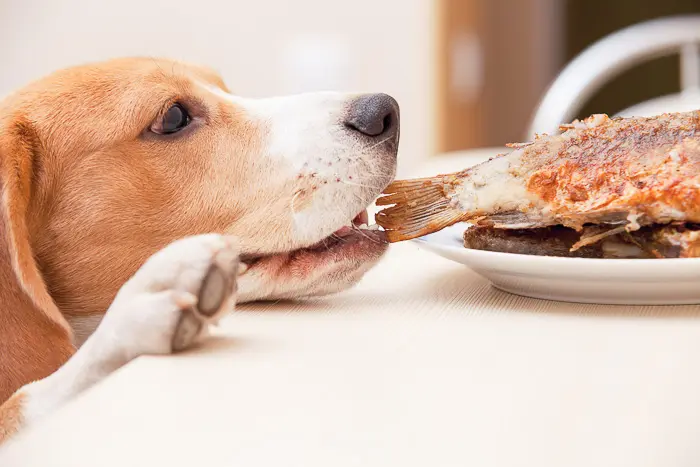

Harmful Reason #3: Salmon Poisoning
Salmon poisoning is a disease that dogs can get from eating contaminated raw salmon.
This salmon is infected with a parasite, Nanophyetus salmincola [source].
This parasite can be the carrier for a particular bacteria called Neorickettsia helminthoeca.
This bacteria can greatly affect the health of your dog. Your infected dog will start to show symptoms within 6 days of ingested the infected raw fish.
Signs of Salmon Poisoning Disease include:
- vomiting
- diarrhea
- stomach / GI upset
- lethargy/weakness
- anorexia
- fever
- ocular and nasal discharge (eye and nose discharge)
- possible death if not treated properly or timely
Harmful Reason #4: Other Parasites and Contamination
Just like when preparing fish to serve your human family, you should always properly cook salmon thoroughly before feeding it to your dog in order to avoid any issues with ingesting parasites.
Parasites commonly found in fish meat are normally killed by heat during the cooking process, which is the main reason why it is so important to properly cook your salmon!
Harmful Reason #4: PCBs & Dioxins
PCBs(polychlorinated biphenyls) areman-made cancer-causing chemicals and dioxins are environmental pollutants from manufacturing.
These toxic substances are slowly leaked into the water systems or where improperly disposed of and are now exposed in the environment, seeping into waterways.
Once in the waterways, fish can become contaminated with these substances. [source]
Harmful Reason #5: Thaminase / Vitamin B1
One big reason for many to be concerned about feeding dogs certain fish species like salmon and tuna, is the enzyme thiaminase.
Any raw fish, no matter what species of fish it is, contains an enzyme called Thiaminase.
This enzyme is responsible for breaking down any thiamine (vitamin B1) your dog ingests, but if you properly cook the fish before eating it, the heat from cooking will make this enzyme useless in this regard.
Allergic Reaction to Salmon:
A dog can develop an intolerance or an allergy to any food, so there is always the possibility that your dog is allergic to salmon.
If you suspect your dog is allergic to salmon do NOT feed salmon to your dog.
If your dog is allergic to salmon and accidentally ingests it, go to your nearest animal emergency room immediately.
Can Dogs Eat Salmon?
Salmon, given in small amounts periodically, is most likely just as healthy for your dog as it is for you.
Therefore, yes, dogs can eat salmon.
Moderation is key; never go overboard when feeding salmon for dogs. Small amounts every once in a while is okay for most dogs.
Dogs can have salmon but only one or two times per week in small, controlled amounts.
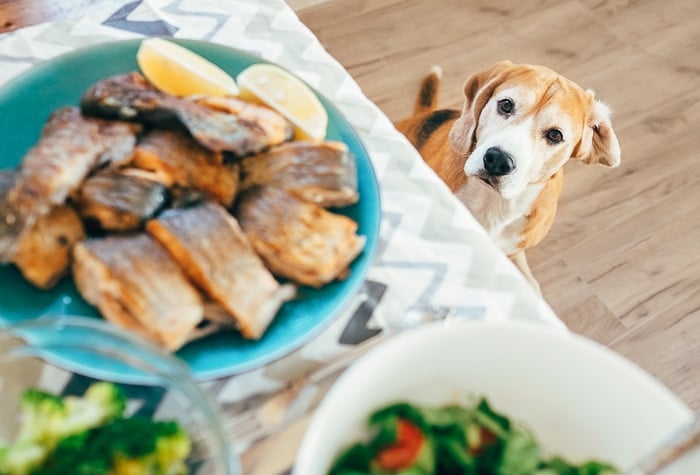

Is Salmon Beneficial For Dogs?
Salmon has several health benefits for dogs, just as it does for humans, discussed earlier in this article. Some of the benefits for your dog include:
- Fish is a great meat and protein source.
- Not only does fish contains high levels of protein, but it contains high levels of healthy fats, minerals and vitamins too.
- Fish is high in Omega-3 fatty acids which can help make your dogs skin and coat silky, shiny, and smooth.
- Fish is also extremely beneficial for overall development and function of many of the bodys systems due to the great source of many vitamins and minerals found within it.
Types of Salmon Dogs Can Eat:
Fish types considered by many to be safer for dogs are the fish most commonly used in commercial dog foods salmon, whitefish, herring, flounder, and Arctic char.
Typically, smaller, younger, wild-caught fish are generally safer options when considering adding fish to your dogs diet.
Should Dogs Eat Wild-Caught or Farm-Raised Salmon?
Wild-caught salmon is thought to be healthier and safer than farm-raised salmon as farm-raised is seen to be fattier and contain more chemical/pollutants than wild-caught salmon, even though wild-caught fish can contain these chemicals and pollutants as well.
Wild-caught salmon is typically more expensive than the farm-raised choice too.
So there are pros and cons to both choices.
I typically recommend finding wild-caught salmon as a first-choice option.
Can Dogs Eat Smoked Salmon?
Just do NOT feed your dog smoked salmon!
Smoked salmon is not safe because the smoking process involves curing the fish in brine with salt, lots and lots of salt. That makes it too salty for dogs.
Can Dogs Eat Canned Salmon?
Canned salmon can be a healthy, protein-packed snack for your dog.
If feeding your dog canned salmon, make sure to look for fish in water rather than oil, and if offering your dog the canned fish water, be sure that the fish does not have any added salt.
Look for the phrase no salt added on the cans packaging just to be sure.
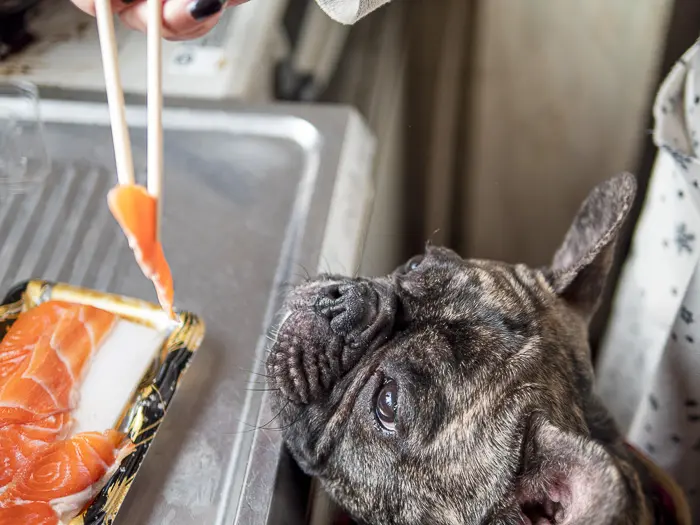

Can Dogs Eat Raw Salmon?
Can dogs have tuna that hasnt been cooked or isnt canned?
Hard no. Not only should dogs not eat raw salmon but your canine friend should not eat any type of raw fish orseafood.
Raw salmon is definitely not the safest choice.
Raw salmon can carry bacteria and parasites that may be damaging to the body once consumed.
Also remember that raw fish contains the enzyme thiaminase, and enzyme that can inactivate thiamin (vitamin B1) in your dogs body.
Cooking salmon takes care of this issue, destroying the thiaminase.
Your pup will likely love his salmon treat no matter what form it comes in so better to be safe and only serve them cooked fish if any at all!
Can Dogs Eat Breaded, Battered, Blackened, Seasoned, or Marinated Salmon?
Unnatural, greasy coatings definitely arent safe for your dog to be ingesting.
Seasoned or blackened or marinated choices use spices, which can be dangerous to your pup.
Stick to fresh varieties of fish from the fish counter of your grocery store, and dont try slipping your pup any fish sticks.
Can Dogs Eat Salmon Skin?
As long as the salmon is cooked without harmful-to-your-dog ingredients, cooked salmon skin that has been prepared without fat (such as oil), and seasonings, is safe for your dog to eat.
Keep in mind that the skin of salmon is very high in fat, so only give it to your dog as a treat every once in a while. rarely or as an extra-special treat.
How to Serve Salmon to Dogs:
As convenient as it might be to just let your dog have salmon, thats not the safest option for your pup.
Keep the following in mind when serving salmon to your dog:
- When buying dog food like canned fish, remember to buy the water-based cans of tuna (not fish in oil!) without additional flavorings or seasonings.
- Make sure to properly cook the fish to eliminate any parasites and harmful bacteria that may be present.
- Using fresh fish? Feed cooked fish to your dog with it first deboned. Dogs arent great with bones and the bones can end up lodged in their air passage and present as a choking hazard for them.
- Do not add salt or seasonings to the fish. Your dog will love the fish just fine without any additives that could cause them more harm than good.
- Introduce fish small amounts at a time. Its definitely a good idea to take it slowly. Give your pup a little at a time and wait to see how they react to the treat before proceeding with giving them another bite or two.
And remember that dogs need more than a bowl or plate of fish they need a complete and balanced diet.
Whichever food you choose for your dog, whether it is salmon or another protein source, fresh meat or store-bought kibble, it needs to have the AAFCO label indicating the diet is complete and balanced for your dogs life stage.
AAFCO approved foods have gone through testing and compliance to make sure that the diet is safe and healthy for your pet.
Dogs already get everything that they need from their kibble or canned food.
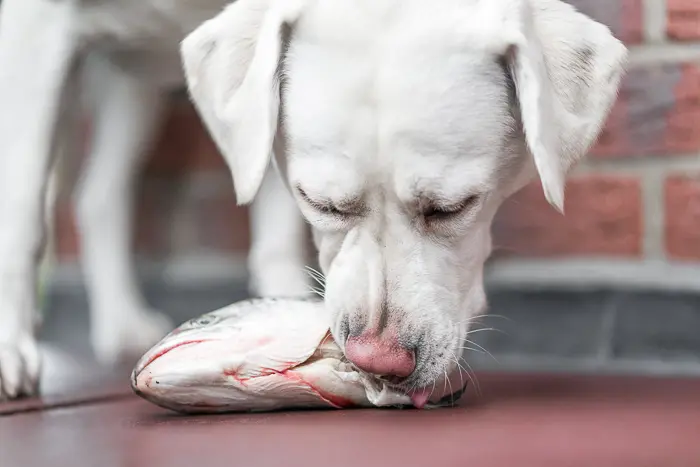
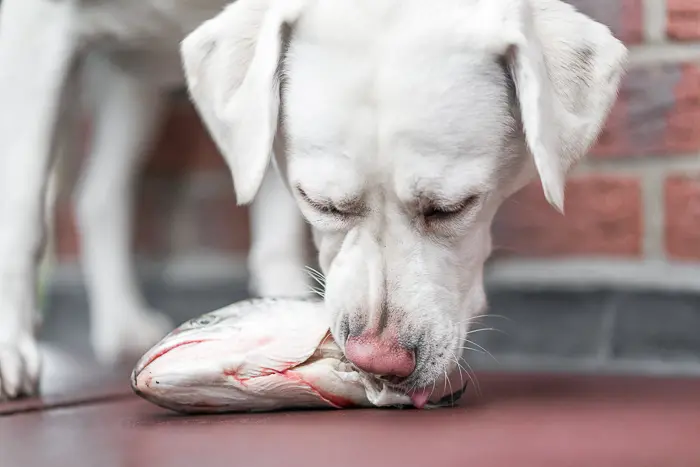
How Much Salmon Can My Dog Have?
Can dogs eat salmon? As I mentioned previously, it depends
Small amounts of salmon dont contain enough heavy metals to cause a problem in your dog if given periodically.
Adult dogs should not eat cooked salmon more than once or twice a week, and these treats need to be fed in small amounts.
There is a big difference between feeding your dog salmon occasionally as a treat and making it a staple part of their diet. Treat salmon as a every-one-in-a-while special treat.
Its always better to be safe than sorry!
Too much of a good thing can be an issue. Too much salmon can lead to obesity and other health problems.
Talk to your vet about the appropriate serving size of salmon for your dog, ESPECIALLY if you plan to feed salmon as a regular part of their diet.
Can Puppies Eat Salmon?
I would never advise a puppy owner to feed salmon to their puppy. No way.
Your pups first months of life should consist of specialized puppy diets approved by your local veterinarian upon puppy exam.
Salmon Takeaway:
Dogs are carnivores that really love to hold true to that label!
They LOVE meat! Salmon, a meat that is commonly consumed by humans is naturally drool-worthy to our canine companions.
Allowing your pet to have a bite or two of cooked salmon without seasonings, oil, flavorings, or bones, given every once in a while is okay.
Giving your dog a salmon treat every once in a while will not give them mercury poisoning or the other health issues that were discussed throughout this article.
If you are concerned about feeding your pet dog a salmon snack or you feel that the fish that they have already snacked on didnt go well, contact your veterinarian for more guidance on what to do next.
Trust me, us vets are happy to help!
References Used in This Article:
- FDA, Mercury Levels in Commercial Fish and Shellfish U.S. Food and Drug Administration (FDA), 2017.
- Sheer, R., et al, How Does Mercury Get Into Fish? Scientific American, 2018.
- Pendergrass, J., DVM, Mercury in Dog and Cat Foods: Cause for Concern? American Veterinarian, 2016.
The information provided in this article is not a substitute for professional veterinary help.

